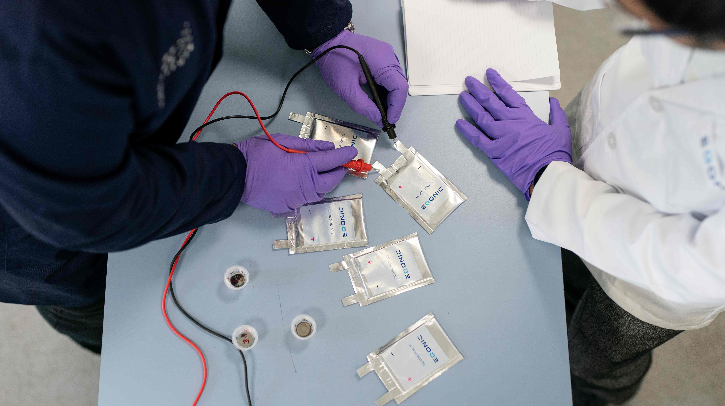Eqonic has developed new battery technology, designed to address the cost, safety and sustainability challenges facing energy storage, which slashes material costs by 70%.
Eqonic’s next-generation battery system has reduced material costs to 30% of those in traditional lithium metal batteries. Since materials make up about 60% of total production costs, this solution equates to a target manufacturing cost of £50/kWh at scale — around half the current industry average.
Unlike conventional battery technologies that rely on lithium or other materials prone to thermal runaway, the company’s composite materials are inherently non-flammable, eliminating fire risk. The technology also addresses critical supply chain vulnerabilities by using only abundant materials with no rare earth metals, no lithium and no sodium. Its batteries are designed for complete recyclability from conception, embodying a true circular economy approach.
Rather than building its own factory, Eqonic plans to license its technology and to secure collaborations and partnerships to commercialize its innovations.
Jas Kandola, founder and CEO of Eqonic, said, “The energy storage industry is stuck in a compromise, choosing between cost, safety or sustainability. We’ve eliminated that trade-off entirely. While others were rushing to market with incremental improvements, we took a different path: develop breakthrough technology first, then build the business around it.
“We handpicked cross-industry experts and assembled a highly experienced scientific and engineering team from diverse sectors to tackle the fundamental challenges. The result is technology that costs 70% less (at material level) than traditional lithium batteries while being completely safe and sustainable – free of rare earth materials to avoid the huge environmental cost to extract, refine and transport.
“After years of quiet development, we’re now on track to demonstrate a market-ready product in the near future, and the timing couldn’t be more critical. The world needs affordable, safe energy storage at scale, and the conventional approaches simply can’t deliver that.”
In related news, Yasa breaks its own “unofficial world record” for power density


